

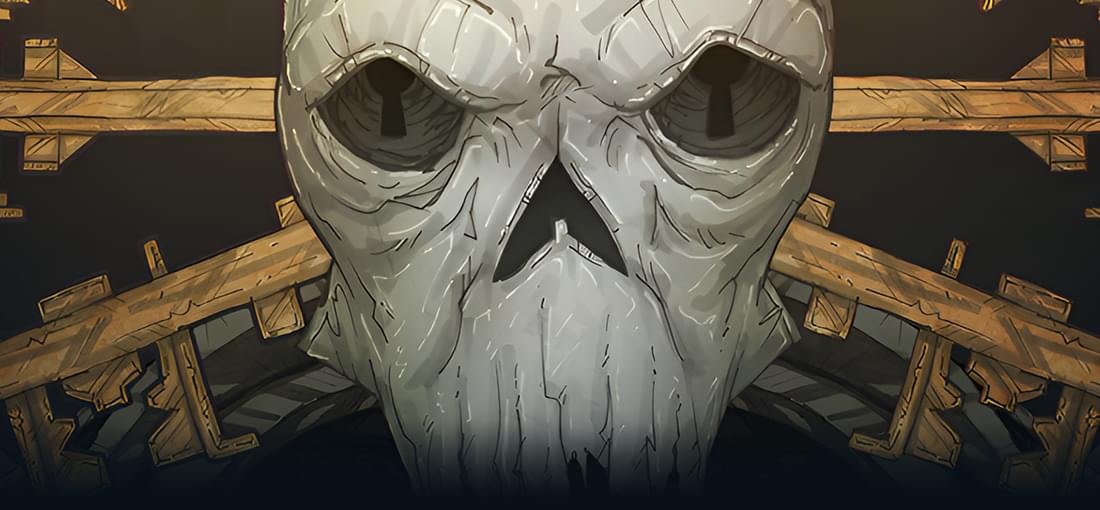
Disclaimer: I didn't finish the game. The opening of Murder on Space Station 52 is promising: you get some atmosphere (pseudo-noir in a sci-fi setting? Why not!) some intrigue, and a set of mostly simple and logical puzzles to pursue. This is also where the demo originally ended, and where the problems begin, in my opinion. As a point & click adventure, you'd expect the story to have more impetus, but it's actually not that strong. There is a murder (we find the body in the first chapter), the local authorities don't seem interested in making an accurate investigation, so we step up (it's a bit weird, as we are just an engineer, but there are some hints at us being familiar with this sort of stuff as well). The problem is that the game does a poor job of making the protagonist sound invested in this: the stakes aren't personal, the lines he speak don't give him a sense of urgency (neither does the voice acting) and there is no rationalization as to why we are jumping head first into this mess. If that wasn't enough, the puzzles immediately become more absurd (with arbitrary obstacles and setbacks to overcome, most with little to do with the murder), and the humour doesn't keep up with the absurdity (the writing seems to flip-flop between absurd and serious without enough grace to carry either). I just about had it when we start chasing a shadow in the fog during a cutscene for NO REASON (other than to advance the plot, obviously). If this is the type of contrivances required to keep this plot going, I'd rather stop here before investing any more of my time. The game was quite frankly boring, which sapped my goodwill from the demo and my desire to play rather quickly. The puzzles are weird because of the setting and the kind of items you are showered with (plus they often rely on obtuse UIs). The items themselves, however, seem to fit this alien setting, depriving them of the ability to truly amuse you as you cook up the next bizarre solution to a problem. Maybe the game suddenly improves later on, but I have no desire to stick with it long enough for that to possibly happen. The visuals seem to be the most interesting part of the game, and for that we have screenshots and youtube playthroughs.
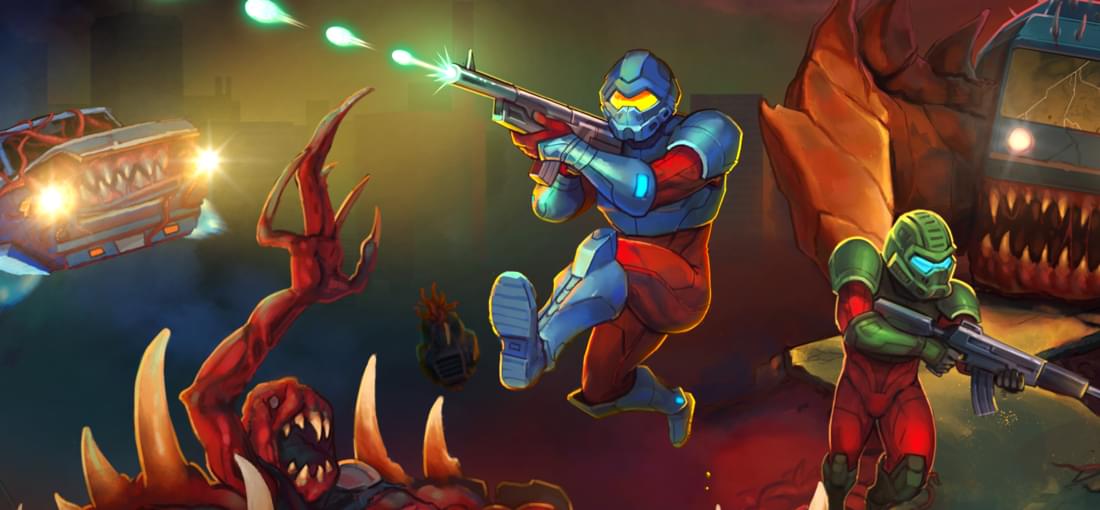
Iron Meat is a run-and-gun 2D shooter, in the vein of classic Contra games. The game offers great pixel-art (quite detailed and well-animated), a blood-pumping soundtrack (with the option for a "retro-style" arrangement) and in general a very well-executed and packaged presentation. The gameplay is simple, allowing you to collect various weapons from containers, drones and occassionally from friendly NPCs. Said weapons get powered up if you collect a second copy of the same type, while a third copy grants another damage boost (only temporary this time). You have two weapons slot, and if you are hit you lose a life and the weapon you are currently using reverts to the basic machine gun. The game is quite enjoyable, and they mostly nailed the controls, jumping and overall feeling for a 2D shooter. The bosses and weapons are interesting and fun most of the time, demonstrating solid design and a good understanding of the genre (a couple of the weapons might be a little redundant, and overall they slightly lack in variety). The game is tough, but it's not unbeatable. You can complete each level individually and you have plenty of lives to do so. Iron Meat suffers a bit on the longevity side (on normal you can expect to complete the entire run in around 1 hour). You get unlockables to customize the look of your character, but I honestly would have preferred just a little more content. There are also some issues as far as variety and platforming design go. You are alway running and gunning from beginning to end: no vehicles, no stages or sections with unique gimmicks, and there are hardly ever any unique platforming challenges. This at times make the stages feel a little too "flat", although it's not a deal-breaker. Overall, this is a fun game to experience, even if it doesn't threaten the position of Contra 3 and the other top examples of the genre. It's very easy to recommend, as long as you don't mind how short a single playthrough can be.
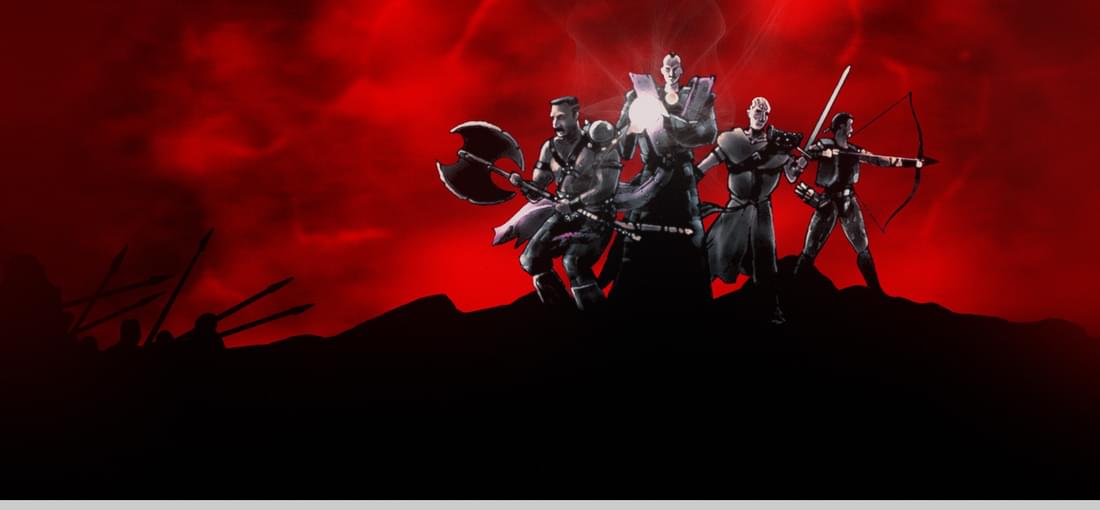
A lot has been said about Gothic, so I'll try to keep this relatively short. It's an RPG with lots of issues. The entire control scheme is wonky, and if you can't get past that, you can't enjoy the game. Combat is wildly unbalanced: the most overpowered move is dodging backward, as it grants you invulnerability for several frames; if you start using summons you can overwhelm anything; at the start you are weak as a newborn and so on and so forth. The game gets severely linear after chapter 1-2. Often, you can find glitches and assorted issues, ranging from annoying to hilarious. Despite all these problems, the game shines with an interesting story and setting, a rewarding progression (from very weak to force of nature) and an open world full of things to explore. There is an atmosphere to the prison micro-cosm you are thrown in which makes it all seem more alive than it actually is. The plot twists are nice and the game accomodates several playstyles for you to enjoy. The music could use more variety, but it's also good. It's clunky, and you can kind of tell they ran out of money and had to really rush to wrap things up, but it's the kind of game that truly resonates with a certain crowd, and I really enjoyed its clever ideas and designs, despite the all-present flaws. The jank is real, but so is the charm.
The Curse of Blackmoor Manor is a solid point and click adventure, marred by some design decisions like too many mini-games which are luck-based and an excessive amount of stairs that will require you to click a dozen times in a row to get anywhere. Despite these flaws, the game provides plenty of fun for puzzle-lovers. Some of the challenges are very well-designed and satisfying to solve. Graphics are nice but a little uneven. The environments look good despite being dated, but the characters are a bit of a mixed bag. Other animations do a fine job of portraying the various events. Music is nice, but a bit sparse. Some areas of the game have a great atmosphere to them, although the mansion is at times a little TOO bizarre, losing in cohesion a bit. Story-wise, the plot is fairly simple. You are invited to figure out what's wrong with the health and behaviour of the mansion's lady (don't ask me why they didn't call other doctors over time, rather than our young detective), although that quickly becomes marginal compared to what you'll be investigating. The characters have the right amount of charm to balance their annoying traits, and help build the mood with their quirks. The plot twist at the end is a mix of silly, contrived and predictable, but it also kind of works, surprisingly. The narrative is never overly present, which avoids shining a spotlight on its limitations. The gameplay is where the game shines. The amount of puzzles is high, and several are truly well designed! It's a pity just how many mini-games are luck-based, and how some of the mechanics are purely annoying. The time progression, the actions required to open certain paths (being repeated for every use), as well as other annoyances just feel like padding. Using saves to "teleport" around so you can consult the documents you find at will is a must to get things done quickly. Ultimately, The mood and the good puzzles are strong enough to make the game fun, if you like the genre. Recommended!
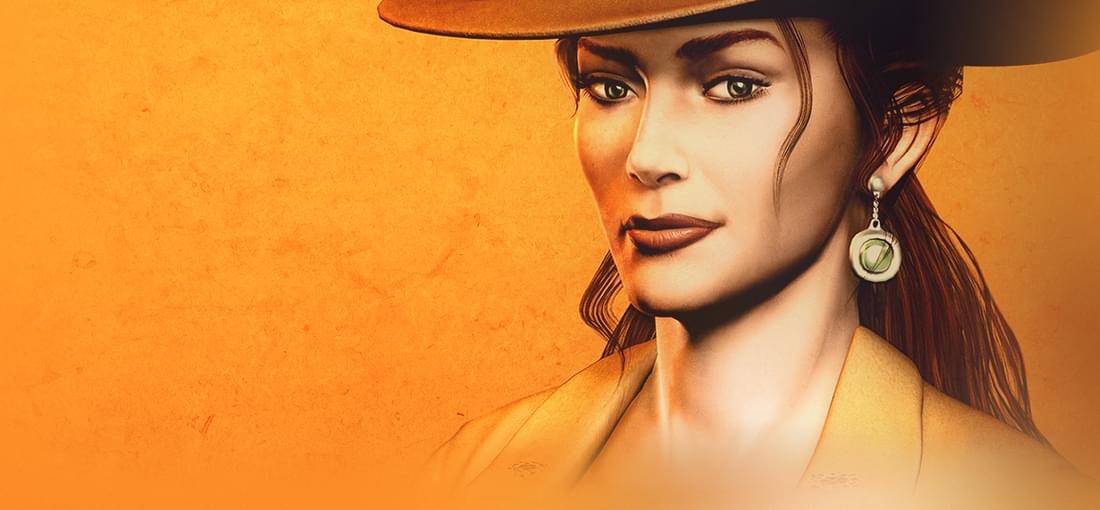
Desperados is a Real-Time-Tactics stealth game, in the same vein as Commandos. Shooting is a bit more viable, but you still need to be careful if you want to complete each level. Presentation is isometric, with pre-rendered backgrounds and characters. Everything is obviously low resolution, but it also has a lot of details, making for a visually appealing design. The game also features pre-rendered cutscenes of fair quality and voice acting in various languages (I played the italian version, which is not bad). The music is good and the sounds are nice (there are quite a few background noises, which breathe life in the maps). The story is a bit silly when you stop and think about it, but the setting/clichès surprisingly carry it. It's also not overly present, helping its score. Gameplay is fairly standard for the genre: each character in your team has his/her own abilities, you can distract enemies with sounds or items, knock them out by throwing rocks or punching them, throwing knives for the kill and so on. You examine the map, formulate a plan, see it fail, and reload to tweak it and try again. The AI is inconsistent. They have different individual behaviours, but in practice this just increases the trial and error, as you figure out which ones can be distracted. They are also too good at shooting (if you don't shoot first, you are dead 90% of the times, despite any range advantage) and the visual cones are not 100% accurate on rare occasion. At the same time, the AI can be pretty stupid: watch them clown car their way to the corner and get shot by the dozen as they peek in your view, with your gun ready. Also, most enemies that can't be distracted normally rush when they see a body, so once you knock down the first guy, you can often get the stubborn ones that way. Despite the flaws, several of the missions are very fun, the stealth is entertaining and when you can go all out, destruction is a blast. Recommended if you don't mind the genre's difficulty.

System Shock is a remake of the 1994 "proto immersive sim" by the same name. I haven't played the original, so I won't be making comparisons. The game has highs and lows: the graphics are a weird mix of modern and "faux-retro". While neither is bad, using both at the same time detracts a bit from the presentation. Despite that, the game manages to convey a great mood through its visuals. Some environments are repetitive, however. The music is nice, if a bit too subdued outside of combat. The story is relatively straightforward: you are a hacker, currently stranded on an isolated space station run by an AI which you yourself helped getting unshackled, and it is now planning the eradication of mankind. Once again, I think the story's strong suit is the atmosphere. The gameplay is a mixed bag: usually, enemies give decent feedback only on first hit and sometimes if you target a weak spot, otherwise they relentlessly charge at you, or shoot at you with the precision of an aimbot (strafing is almost useless). The game of cat and mouse can be fun, though, and as you progress you get your hands on a real arsenal of fun weapons. Don't try to be stingy with your strong "toys": you die quickly, so finishing the opponent rapidly is a must. Enemies respawn if you don't lower a floor security to 0, though, so be careful. The game is linear early on, opens up in the mid section, and then converges again. Unlocking movement abilities for your boots and mastering them is fun, and opens alternative solutions to encounters and situations. The game has a variety of hazards (and some puzzles) in your way which help keeping things varied, as well as various secrets. To be honest, the game is clunky in various aspects, but it gets really fun if you can look past that. The objectives are fairly original, and generally the ideas carry the game even when the execution stumbles here and there. I think it's a worthwhile experience, and I'd like to play the original too, eventually.
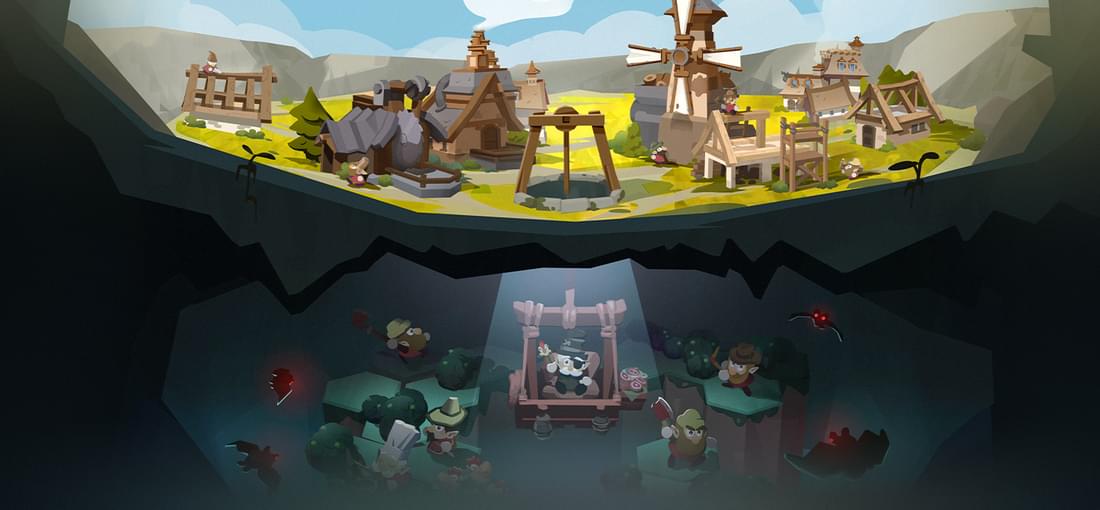
EcoGnomix is a turn-based roguelite game mixed with some light city-building elements to handle the unlocks. Honestly, the city-building plays a minor part, and the roguelite is the main focus. The presentation is simplistic, and overall could be better, but the style is cohesive enough to work as is. The music is a bit above the graphics, although it's not anything you'd listen to outside the game. The objective is to delve into a cave, doing your best to balance the gathering of resources with your efforts to keep your food reserves high enough to complete the descent (food goes down each turn thanks to famished bats). You must spend at least one turn in each room, although if you can keep a positive food balance you might want to stay and gather more of the limited resources (necessary to hire more gnomes, and to upgrade them). Go deep enough in a cave, and you'll find the boss, but not before meeting several intermediate rooms. You can pick your path, and you'll strategize about the best route often. Each room has its assortment of creatures, traps and layouts, so careful placement of your gnomes is necessary to make it out with what you need. Defeat the main boss, and you complete that run. Go spend some of the resources in your city to unlock more items, gnomes and skills. Defeat a boss 3 times (each subsequent run increasing in difficulty and length) and you complete that biome, unlocking the next. Defeat all 3 bosses fully, and you win the game. Each time you delve deeper in the cave, your food consumption increases, so managing food is the highest priority. It's fun to calculate the best plan possible to make it out of a room robbing it blind and avoiding damage to your gnomes, but it can be frustrating as well, when things don't work out. The game can be challenging, but if you get the rules, you'll succeed. Overall, it's a bit simple, but it's an enjoyable adventure. The humour can also be a point in its favour, if you like it. Worth a playthrough.

Pinball Spire is a pinball game with extra mechanics. The pure, "vanilla" experience isn't exceptional (most of the tables are simple, and I feel like the ball aim is a bit "off" compared to what it should be), however the powers prevent it from being stale (at the cost of perhaps being too easy). The presentation is simple, but charming, and distinctly retro (minus the lighting effects, despite being on the simple side as well). Our own ball (whose appearance you can customize if you collect the accessories scattered around) manages to have some personality, despite not having a lot of "spoken lines". The music is good and fits the mood of most situations. As you progress, you'll become able to slow time (with an additional aim tracker which appers when the ball is on one of the flippers), turn into a fireball (useful for enemies and required to light up lanterns) adjust your direction and finally the ability to fling yourself at great speed. A mana system (which replenishes when killing enemies) keep the powers from being completely overpowered. Said abilities will be used in a variety of tasks, although as mentioned before the tables themselves are on the simple side, when you stop for a second to look at them. The tasks might be too easy for actual pinball veterans, but at least the game avoids all frustrations which come from traditional pinballs as well. The game is on the short side (took me around 4 hours to finish), and it's probably a good thing, considering how simple the tables are, and how the powers could easily overstay their welcome if repeatedly used again and again. I think the game is more a 7 than an 8, but I enjoyed my time with it, so I decided to round the score up. Pinball veterans might find the experience a little too flat, even with the powers, But I think there is fun to be had if you don't come in with unrealistic expectations, and the game does feature a few clever puzzles/ideas. All in all, it's a charming, fun twist on pinball.
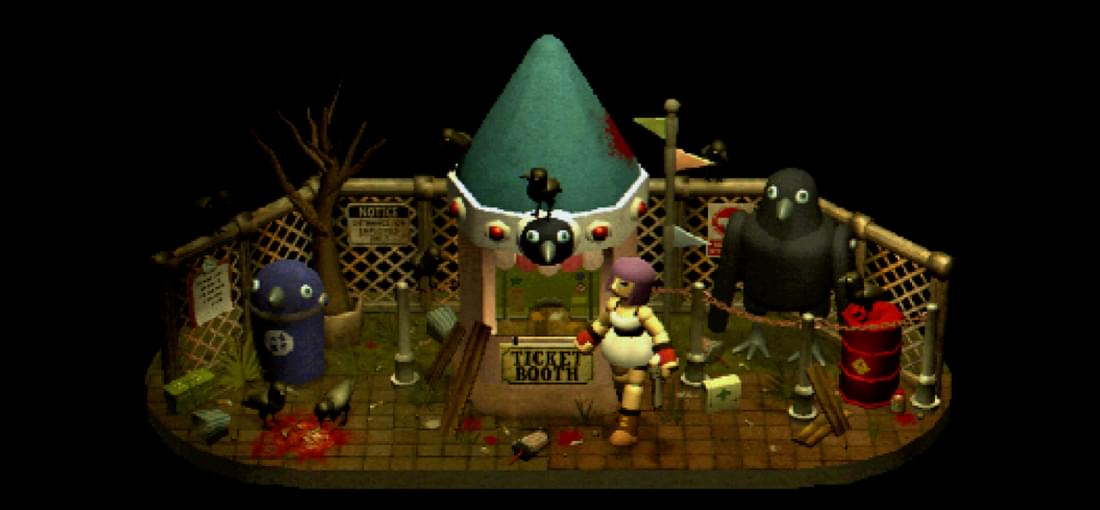
Crow Country is a survival horror inspired by games from the PS1 era. While it's inspired by them, it has plenty of its own ideas (and quirks) giving it an identity of its own. The presentation is on point: graphics, music and sounds are good and have a familiar-yet-different "PS1.5" vibe. The pixellated style might not be for everyone, and the characters aren't the most detailed, but it's all very deliberate and I think it successfully captures the atmosphere they were going for. The gameplay is solid for the most part: expect enemies to be dangerous up close, and having to weave around them while dodging the traps is entertaining while providing some necessary anxiety for the genre (I played using the tank controls). Puzzles and backtracking are a staple of the genre, and CC is no exception. You also have some secrets, and you even have some minor choices to make here and there. The game isn't without flaws, however: the camera is a REAL pain sometimes (aiming the gun auto-moves it behind you, which can completely obscure your vision), the puzzles are almost all too easy (and too many have excessive hints in the same room), the shooting is wonky (you can miss shots you are sure were dead on target, which can be the difference between dying and taking no damage), and as the game progresses, every map becomes littered with traps, which gets a bit annoying. Overall, the game might be too easy, which could be a problem for some. Story-wise, the game has some good ideas, and some baffling ones. Thankfully, the plot is not too present, otherwise it could have harmed the game. Once everything is said and done, It feels like a bad parody of a Twilight Zone episode. Maybe you can chalk it off as a suitable "horror b-movie" plot, but I feel they missed their chance for something better (most of the characters aren't bad, though). Ultimately, Crow Country is a fun game, and they especially nailed the atmosphere, which is so important for a horror game. I recommend it!